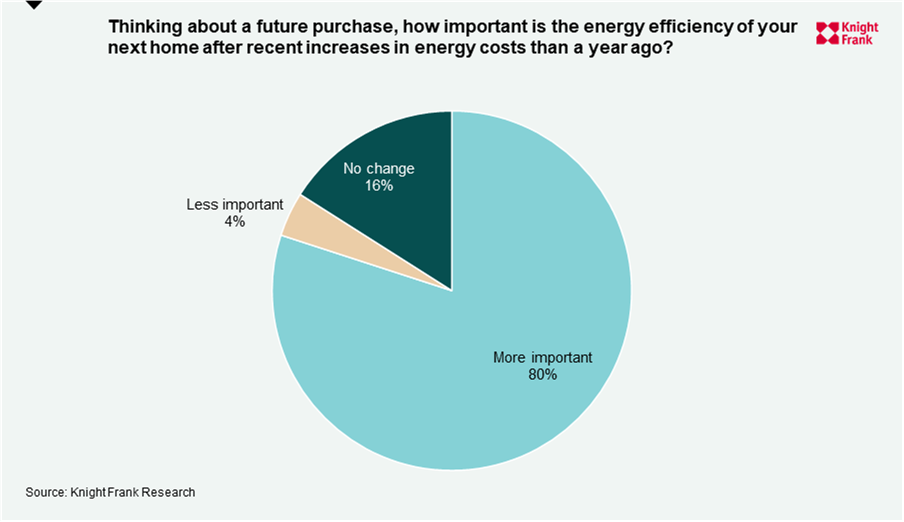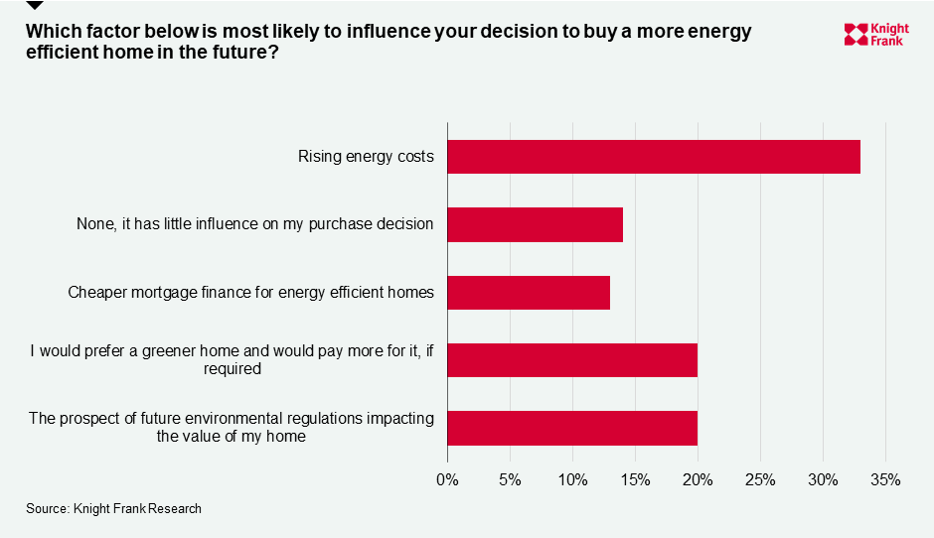The energy efficiency of a home has become more important to 80% of buyers in the past year
A third of survey respondents cite rising energy costs as the reason they will buy an energy efficient home.
2 minutes to read
Eight out of ten people say the energy efficiency of their next home purchase is more important to them than it was a year ago due to rising energy prices and environmental concerns.
Just 4% of respondents to Knight Frank’s latest sentiment survey said energy efficiency was less important, while 6% said there had been no change.
“High profile events such as COP26 have kept the issue of climate change in the public’s consciousness. When you combine that with spiking energy prices it is no surprise that homebuyers are increasingly paying attention to energy performance,” said Chris Druce, senior research analyst at Knight Frank.

The energy efficiency of a home is measured via an Energy Performance Certificate (EPC) with a rating from A (very efficient) to G (inefficient). D is the median efficiency rating in England and Wales for existing houses, while it is B for new build houses, according to the ONS.
Improvements to boost a home’s EPC include big projects like installing external wall insulation or solar panels to smaller changes such as switching to low-energy lighting. Several high street lenders now offer ‘green’ mortgages with lower rates available for properties with and A or B rating.
The UK’s largest housebuilders have also agreed to a sector-wide delivery plan to meet the government’s climate change targets via the Future Homes Task Force. This should see the first zero carbon homes being built by 2025.
A leap in energy prices has been a major contributor to UK inflation hitting a 40-year high, and cost-of-living pressures are among of the reasons that we forecast house price growth will slow from double digits to single digits by the year end.
Asked what factor was most likely to influence their decision to buy a more energy efficient home in the future, a third (33%) of people said rising energy costs.
Meanwhile, 20% of respondents would pay more for an energy-efficient home, 20% believed the value of their home would be negatively affected if they didn’t improve its green credentials, and 13% said access to a cheaper ‘green’ mortgage would be the biggest influence on their decision.
Just 14% said the energy efficiency of a home would have no influence on their purchasing decision.

With electric cars outselling diesel powered alternatives having somewhere to charge them is also on buyers’ radars.
Close to 40% of people said access to a charging point for an electric vehicle was more important in a home than it had been a year ago.
“Off-street parking and electric vehicle charging points are definitely becoming more important for home buyers. This will become more significant as we move towards 2030 when the government has said all new car sales must be electric,” said Charles Davenport, head of Elmbridge at Knight Frank.
Photo by Ilse Driessen on Unsplash